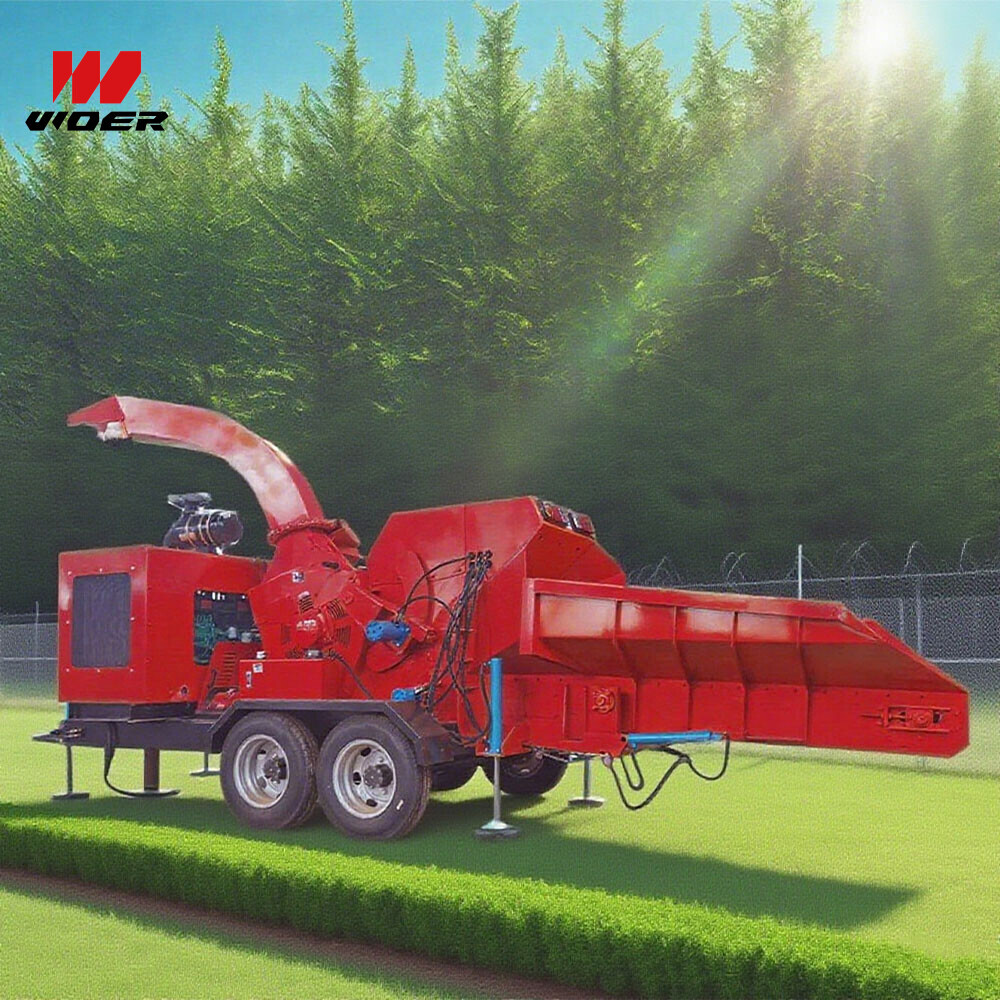Navigation
Contact us
Phone
Message

Forestry Wood Chipper Innovations You Can't Afford to Miss
The forestry wood chipper industry is evolving rapidly, with innovations that enhance efficiency, safety, and sustainability. Whether you're a business decision-maker, technical evaluator, or end-user, understanding these advancements is crucial. This article delves into the latest trends, key features, and practical applications of wood chippers, helping you make informed choices for your operations.
1. Introduction to Forestry Wood Chippers
Forestry wood chippers are essential equipment for processing wood waste into usable chips. They are widely used in industries such as landscaping, biomass energy, and wood processing. Innovations in this field have led to more efficient, durable, and user-friendly machines. From heavy-duty industrial models to compact home-use chippers, there's a solution for every need.
2. Key Innovations in Wood Chippers
Recent advancements in wood chipper technology include:
- Automated Feed Systems: These systems ensure consistent feeding of wood into the chipper, reducing manual labor and improving safety.
- Diesel-Powered Engines: Diesel wood crushers offer higher torque and durability, making them ideal for heavy-duty applications.
- Hydraulic Systems: Modern chippers use hydraulic systems for smoother operation and easier maintenance.
- Noise Reduction Technology: Innovations in noise reduction make wood chippers more environmentally friendly and suitable for urban areas.
3. Applications of Wood Chippers
Wood chippers are versatile machines used in various applications:
- Landscaping: Chippers help process branches and leaves into mulch for gardens and parks.
- Biomass Energy: Wood chips are a renewable energy source, used in biomass power plants.
- Wood Processing: Industries use chippers to process wood waste into chips for furniture, paper, and other products.
4. Heavy-Duty vs. Home-Use Wood Chippers
Choosing the right wood chipper depends on your needs. Here's a comparison:
5. Technical Specifications to Consider
When evaluating a wood chipper, consider the following technical specifications:
- Engine Power: Measured in horsepower (HP) or kilowatts (kW).
- Chipping Capacity: The maximum diameter of wood the chipper can handle.
- Feed Mechanism: Manual, gravity-fed, or hydraulic.
- Safety Features: Emergency stop, feed control, and protective guards.
6. Industry Standards and Certifications
Ensure your wood chipper meets industry standards such as:
- CE Marking: Indicates compliance with European safety standards.
- EPA Certification: Ensures low emissions for diesel engines.
- ISO 9001: Quality management certification for manufacturers.
7. Cost Analysis and ROI
Investing in a high-quality wood chipper can yield significant returns:
- Reduced Labor Costs: Automated chippers minimize manual labor.
- Increased Efficiency: Faster processing times lead to higher productivity.
- Lower Waste Disposal Costs: Chipping wood waste reduces disposal fees.
8. Common Misconceptions About Wood Chippers
Let's debunk some myths:
- Myth 1: All wood chippers are noisy and polluting. Modern models feature noise reduction and low-emission engines.
- Myth 2: Home-use chippers are ineffective. Compact models are powerful enough for most residential needs.
9. Customer Case Study
A landscaping company upgraded to a Heavy Duty Horizontal Hydraulic Wood Log Splitter With Valve Lift and saw a 30% increase in productivity. The hydraulic system allowed for smoother operation, and the automated feed reduced labor costs.
10. Future Trends in Wood Chipper Technology
The future of wood chippers includes:
- AI Integration: Smart chippers that optimize performance based on wood type and conditions.
- Hybrid Engines: Combining diesel and electric power for greater efficiency.
- Enhanced Safety Features: Advanced sensors to prevent jams and accidents.
11. Why Choose Our Wood Chippers?
Our forestry wood chippers are designed with the latest innovations, ensuring durability, efficiency, and safety. Whether you need a heavy-duty industrial model or a compact home-use chipper, we have the perfect solution for you. Contact us today to learn more!

This stunning beach house property is a true oasis, nestled in a serene coastal community with direct access to the beach.
Contact
West Street, Melbourne Victoria 3000 Australia